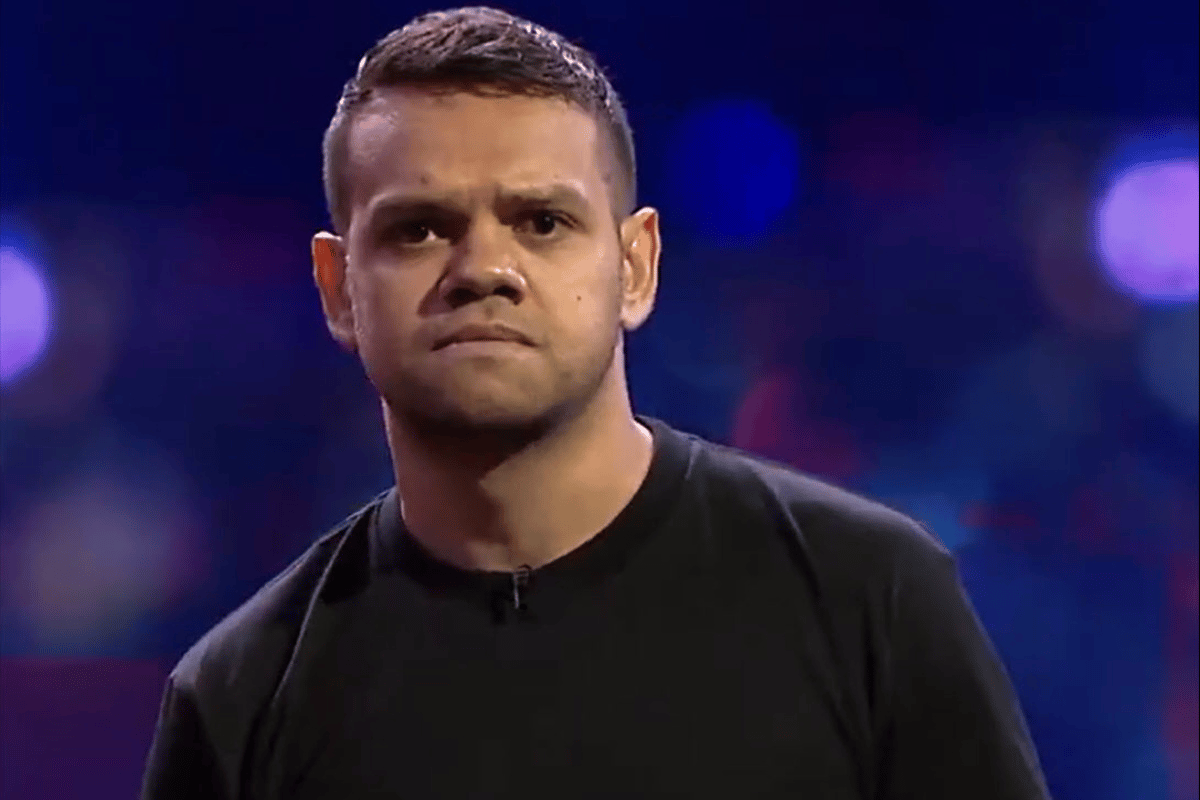
Warning: This article contains the name of an Indigenous person who has died.
Former Neighbours actor Meyne Wyatt delivered a must-watch monologue to round out last night's powerful episode of Q&A about racism and injustice towards Indigenous Australians.
Pulled from his play City of Gold, Wyatt, a Wongutha-Yamatji man from Kalgoorlie, starred down the barrel of the camera and delivered his words. They were written a few years ago, which only further cements that this is not a 'now' problem spurred on by the current movement in United States, but something that has been happening for much, much longer.
Indigenous Lives Matter. Post continues below video.
"You're not your ancestors, it's not your fault you have white skin," Wyatt said.
"But you do benefit from it. You can be okay. I have to be exceptional. I mess up, I'm done. There's no path back for me. There's no road to redemption."
He spoke about the microaggressions faced by him and every other Indigenous Australian.
"We've come forward, we’re progressive," he said.

Top Comments